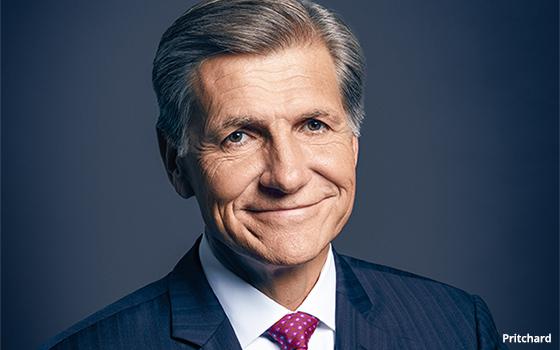
Calling the current system of buying and selling media
non-transparent, inefficient and inequitable, Procter & Gamble’s Marc Pritchard called for fundamental changes—including bidding adieu to the upfronts—that he hopes are in place
a year from now.
Pritchard, P&G’s Chief Brand Officer, made his comments today during a virtual conference hosted by the Association of National Advertisers.
As for the
upfronts, which he called “inconvenient at best” Pritchard said P&G no longer participates and called on other marketers to follow suit because the system “makes little
sense.”
“This system must change,” he said. “A level playing field means planning and negotiating when it fits the business—that’s calendar year for
most.”
He added “that’s why at P&G we’ve taken control of when we negotiate and buy TV media.” And that means negotiating directly with as many media owners
as possible. He stressed that the company’s agencies continue to play an important role as “contributing partners” but “we are in the lead. We give and get the information
needed to make decisions that create value for P&G brands and for the agencies and for the media partners. It’s not about winners and losers—it’s about a level playing field to
constructively creative value together. “
advertisement
advertisement
Pritchard said digital trading—where four players dominate and share as little information as possible—must change too.
“We’ve asked for data so we can compare and make media choices across platforms,” he said. The company has also asked for other changes like a universal ID that the industry can use
for “responsible” targeting before cookies are eliminated. “Over and over we hear the same refrain…’sorry, no can do…for privacy reasons.’”
“We want a transparent and level playing field, where all players—digital and TV alike—participate in cross-platform measurement,” Pritchard said. He called on all
marketers to demand that a validated cross-platform measurement pilot is in place by next September. “We’re committing resources to help and we expect the platforms and the broadcasters in
concert with the ANA and the MRC to get this done—no later than September 2021.”
At the same time Pritchard said, P&G—in a bid for more control-- is shifting as much
media as possible to programmatic. “We want more control over ad placement and we want greater transparency” he said. And the industry has long way to go, he added.
“Unfortunately the famous quote from business pioneer John Wanamaker more than 100 years ago is still true today: ‘Half the money I spend on advertising is wasted; the trouble is I
don’t know which half.’”
He cited China as an example, where over 90% of the firm’s media is digital and 80% programmatic. In the U.S. programmatic “is
nearly our largest media investment and growing in double digits.”
Pritchard also called for equality in the media supply chain, including equal gender equality and race and ethnicity
representation across marketers, agencies, production outfits and media companies. Ultimately, he stressed equality will lead to market growth.
Another urgency, he said, is eliminating
hateful content online. “Social media is about 5% of P&G’s marketing spending and 150% of our problems,” Pritchard lamented.
“We are tired of wasting time
monitoring content. It’s time for digital platforms to apply content standards properly so we can spend time on doing good and driving growth.”